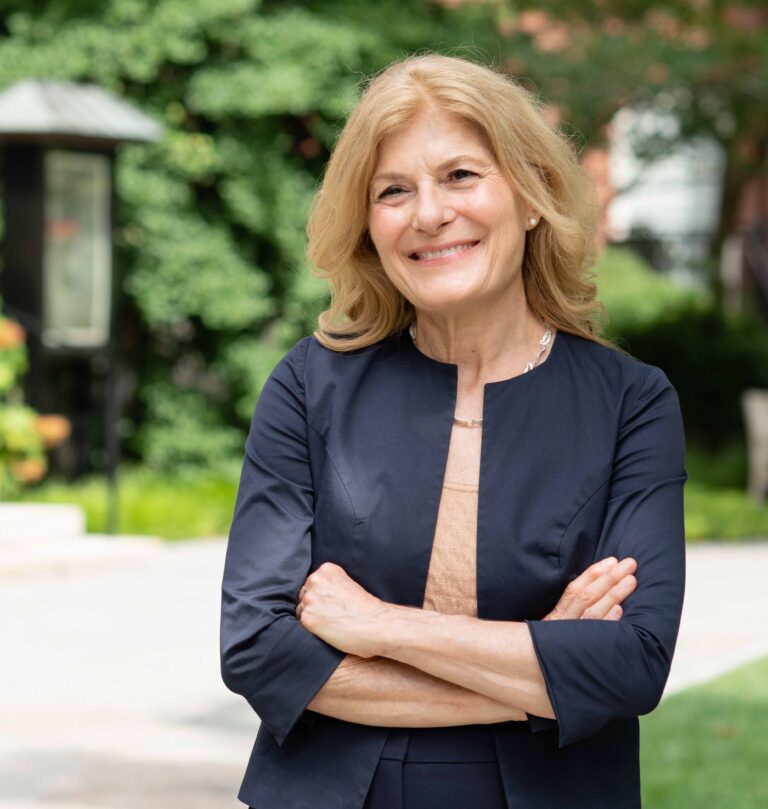Show 1410: Why Practicing Kindness Could Prolong Your Life
Description
This week, we talk with an expert on cancer epidemiology. Surprisingly, though, our discussion centers on the health aspects of practicing kindness and compassion. In our polarized world, anger and hostility are rampant. But kindness is not only good for the person who receives a kind gesture. It also has a biological impact on the person providing it.
You could listen through your local public radio station or get the live stream at 7 am EDT on your computer or smart phone (wunc.org). Here is a link so you can find which stations carry our broadcast. If you can’t listen to the broadcast, you may wish to hear the podcast later. You can subscribe through your favorite podcast provider, download the mp3 using the link at the bottom of the page, or listen to the stream on this post starting on December 9, 2024.
The Health Benefits of Kindness:
Dr. Immaculata DeVivo studies biological effects of behaviors. One of the ways she assesses their impact is through the response of telomeres. These are part of our chromosomes, rather like the little plastic tips on our shoelaces that keep them from raveling. Chronic stress shortens telomeres. On the other hand, long-lived people, like centenarians, tend to have longer telomeres. Is it because they avoid stress, or have they learned ways to dissipate it?
How Can We Mitigate Stress by Practicing Kindness?
Optimists live longer, and they have longer telomeres and less cardiovascular disease. Is that because they practice random acts of kindness? Research shows that women practicing loving-kindness meditation have longer telomeres. Since this is generally a marker of lower inflammation and better health, it seems likely that meditators may be promoting their own health as they concentrate on loving kindness for others.
Kindness and Cancer Treatment:
If kindness has biological benefits–and it does seem to–what are the implications for cancer patients? How can health care professionals practice kindness, and can we expect that practice to benefit them?
Many Aspects of Practicing Kindness:
People often talk about Darwin’s work as demonstrating the survival of the fittest as if he meant the biggest, loudest or meanest. In truth, Darwin was talking about adaptability. Practicing kindness and related behaviors helps us be more adaptable. Dr. De Vivo also discusses the advantages of optimism, gratitude and forgiveness along with kindness. Practicing kindness doesn’t have to be a major effort; she tells about a stranger putting coins in her parking meter on a day when she was having a hard time finding the right change. How have you been practicing kindness?
This Week’s Guest:
Dr. Immaculata De Vivo is the Melanie Mason Niemiec ’71 Faculty Codirector of the Sciences at Harvard Radcliffe Institute, Professor of Medicine at Harvard Medical School and Professor of Epidemiology at the Harvard T.H. Chan School of Public Health and the Editor-in-Chief, Cancer Causes and Control. Her research focuses on how genetic variants interact with the environment to influence susceptibility to hormonal cancers, especially endometrial cancer. Dr. De Vivo, with Daniel Lumera, is the author of The Biology of Kindness: Six Daily Choices for Health, Well-Being and Longevity. Her website is https://www.radcliffe.harvard.edu/people/immaculata-de-vivo-faculty-director
The People’s Pharmacy is reader supported. When you buy through links in this post, we may earn a small affiliate commission (at no cost to you).

Dr. Immaculata De Vivo, photo credit Kevin Grady
Listen to the Podcast:
The podcast of this program will be available Monday, December 9, 2024, after broadcast on Dec. 7. You can stream the show from this site and download the podcast for free.





